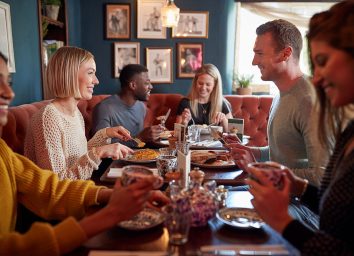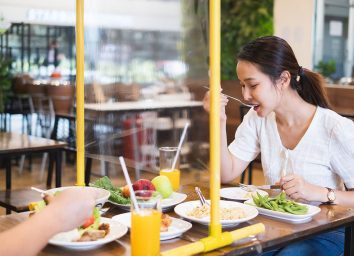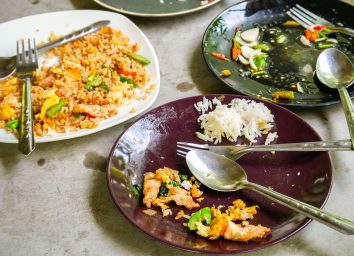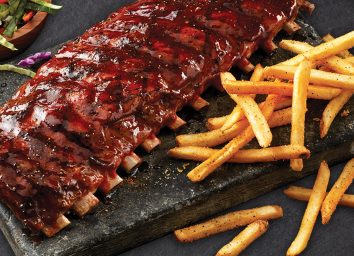7 Precautions You Should Take Before Eating at a Restaurant Again
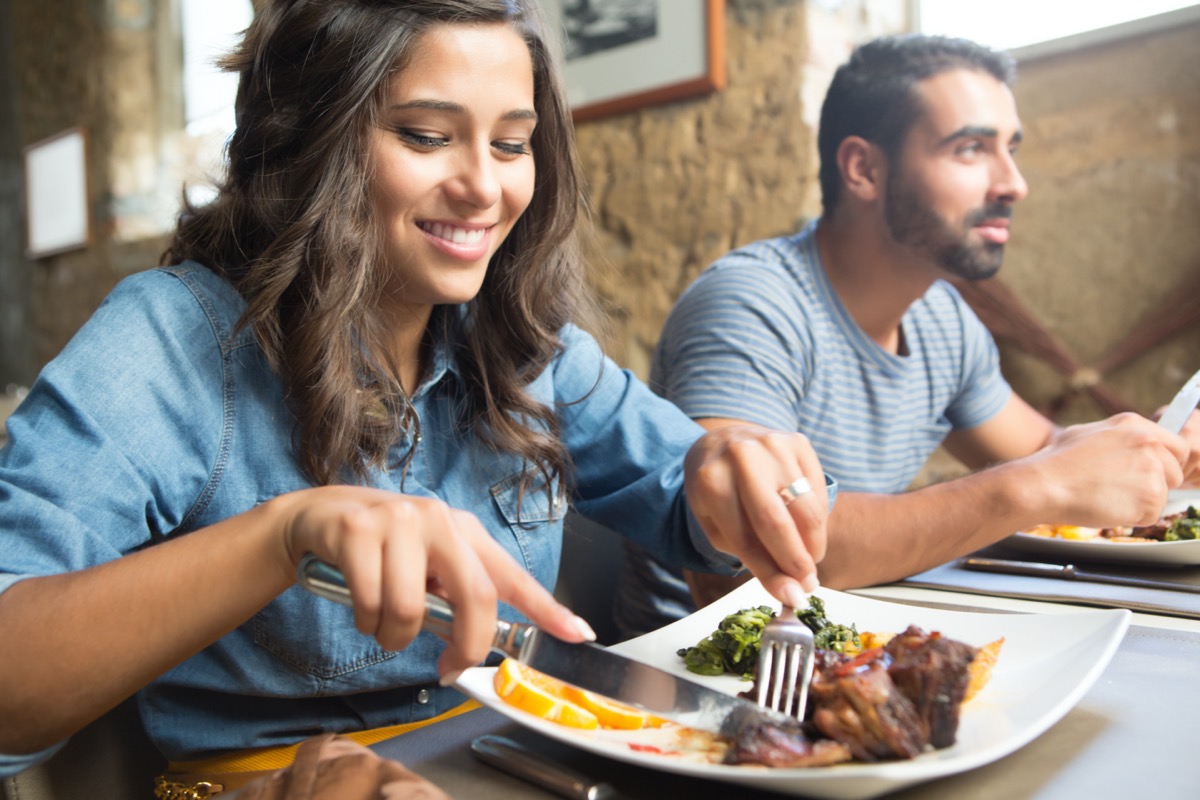
It feels like it has been years since we have had the chance to eat at our favorite restaurants. With summer just around the corner, the chance to enjoy the warm weather and sip a cool beverage surrounded by friends on the patio of a local eatery seems too good to pass up. As states begin lifting business restrictions, this dream finally seems like a reality. While we can now start to get out and enjoy ourselves a bit more, we can’t let our guard down just yet.
Even with social distancing restrictions easing up, contracting the coronavirus still presents a very real threat. Just because we can eat out again doesn’t mean we should believe the danger has passed. By being careful and considerate of other restaurant patrons and staff, we make sure we stay safe when we mingle with others, while keeping our loved ones out of harm’s way. For a happy and healthy dining experience, here are some helpful tips to follow that guarantee a safe summer at any restaurant.
Keep a minimum distance of six feet.

Just because we can get out and socialize again doesn’t mean we need to get close enough to others to easily spread germs. Indoor restaurants and other enclosed spaces present a prime environment for germs to spread. If you decide to eat meals anywhere inside with air conditioning to beat the heat, you may unknowingly be at higher risk for contracting an illness due to crowded seating and minimal airflow
Multiple studies have recently been published correlating social distancing to reduced transmission rates of COVID, so it just makes sense to get some extra space between you and your dining partners (or even the next table over). Plus, dining with extra legroom just feels great and makes any meal better!
Bring a mask.

It might feel silly to wear a mask while you eat at a restaurant. After all, how can you enjoy your meal if you can’t even get it in your mouth? Whenever you dine around strangers, prioritize keeping germs off of others. The easiest way to keep virus-carrying water droplets out of the air is by making sure to wear a mask when you don’t have food in front of you.
According to the CDC, the use of a mask is more important than ever. Now that we are out and about more, catching the illness has never been easier. With increased foot traffic and more people congregating in businesses together, masks can’t be forgotten. Even if you have to wear the mask in between courses, it will make everyone’s experience better and shouldn’t get forgotten.
Limit time spent eating out.
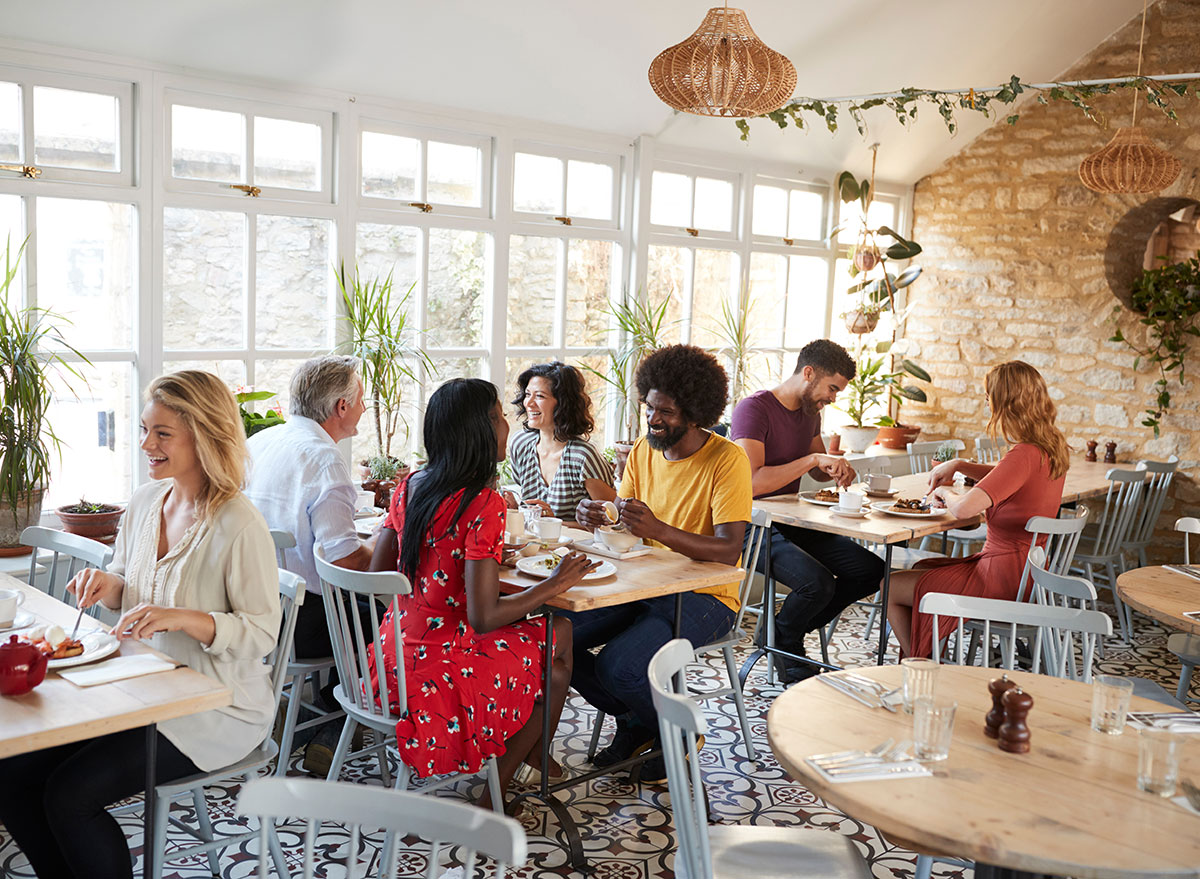
Who doesn’t love a leisurely brunch or a fun night out at the pub with friends? While we all look forward to getting together again, we have to remember that coronavirus can strike anytime and decreasing person-to-person contact helps keep us safe.
According to Dr. Matthew Faiman of the Cleveland Clinic, The longer you mingle with strangers, the higher the chance that you might run into someone who carries the virus. “[W]hen people are put together in large groups, in small spaces, that when you have an illness that is borne by droplets, by coughing and sneezing, that there’s more chance to spread it among the community if you’re in close quarters,” Faiman said.
When you visit any restaurant, opt to skip the endless brunches and extended stays to limit the number of patrons and staff who might be potential carriers. Skip the risk and drop in for a quick bite to avoid getting ill.
STAY INFORMED: Sign up for our newsletter to get the latest coronavirus foods news delivered straight to your inbox.
Keep infants and young children at home.
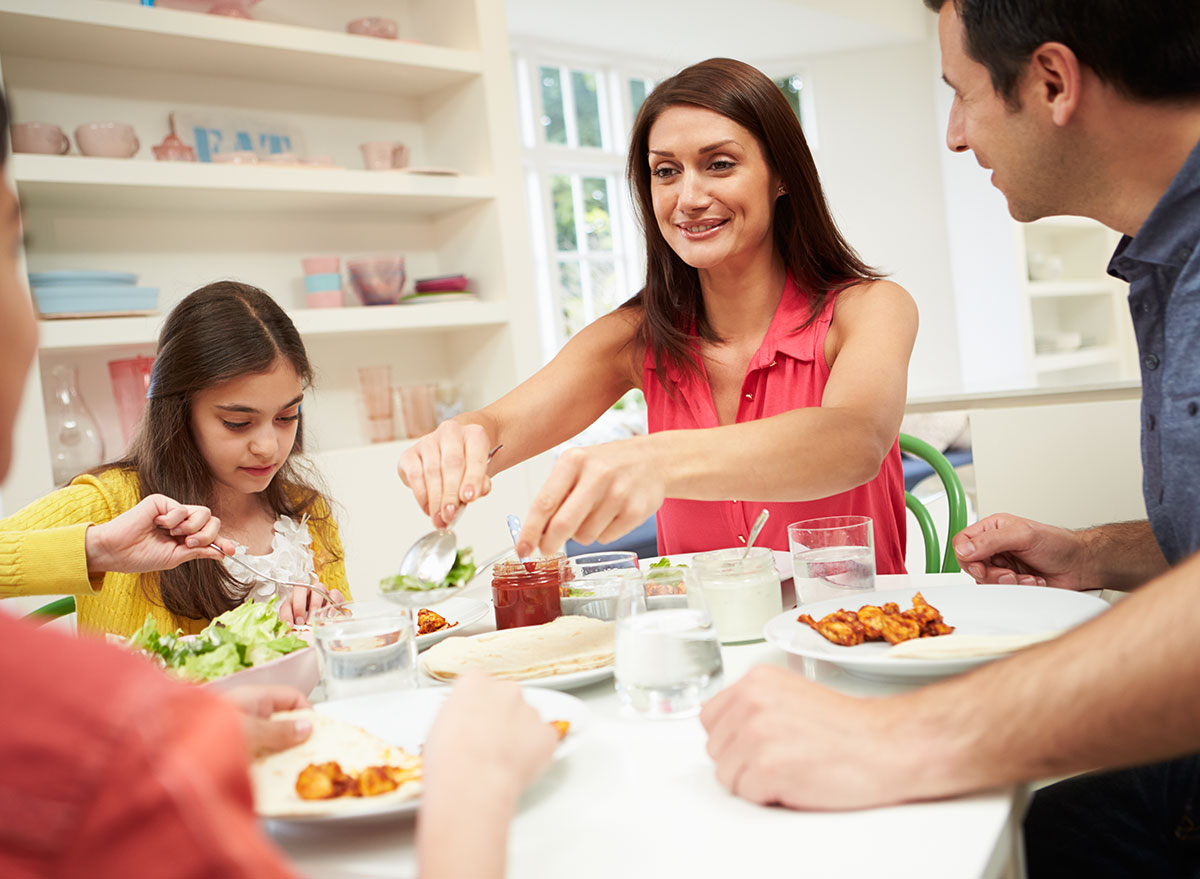
If you get a hankering to eat out, leave the kids at home and make the outing a couple’s night out. Whether you have a fussy toddler or a rambunctious kid, making sure your child doesn’t inadvertently put random objects in their mouth or near their face can be a challenge on a regular day. When keeping your kids well-behaved becomes a potential struggle between life and death, don’t take the risk and don’t potentially expose your children to illness.
In addition to risking the health of your kids, you may still be in the process of teaching your young ones how to cover their mouth when they cough or sneeze. If they still need your help to blow their nose, don’t put everyone around you at risk and keep your kids home.
Bring gloves if you can.
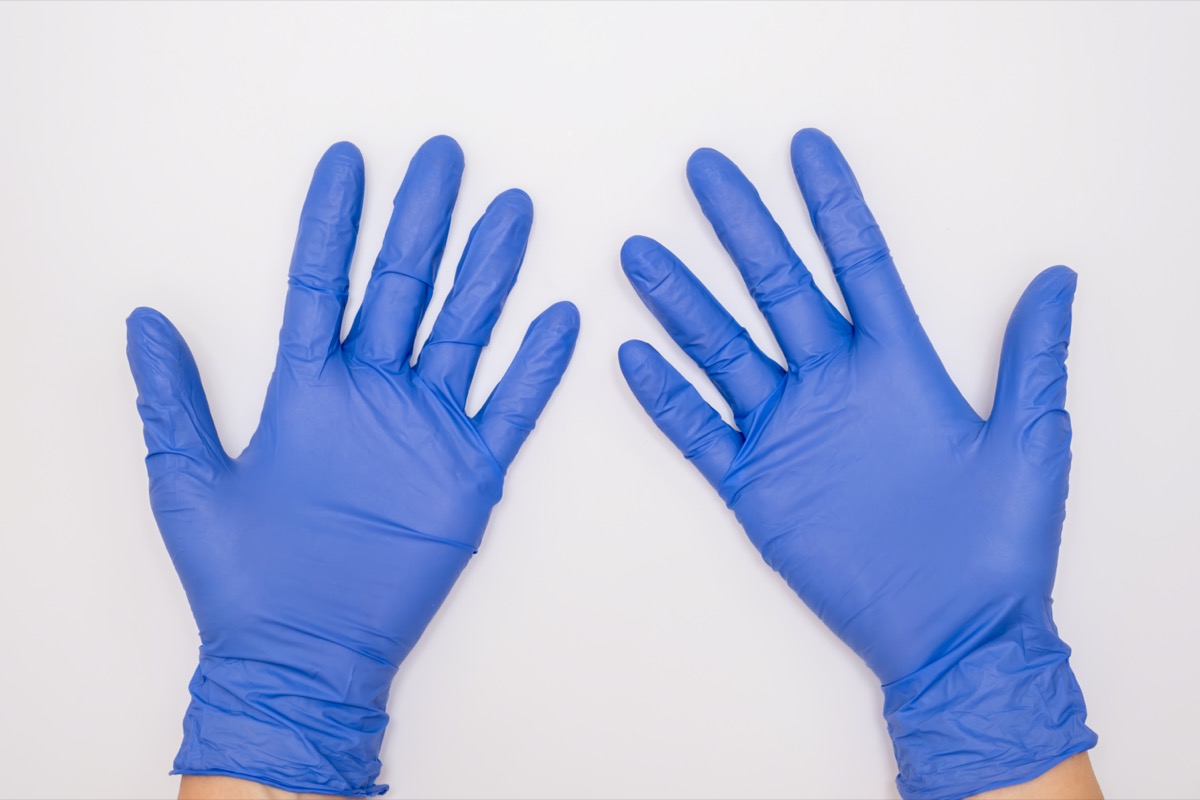
If you usually wear latex gloves to the supermarket or out on errands these days, why stop there? If you can block any potential germs while you run errands, you shouldn’t stop at restaurants.
Contaminated surfaces can transmit COVID-19, and gloves continue to help keep these microorganisms from entering your body. Just make sure to throw away the gloves after you’re done eating and before you put food or beverages near your mouth. If you have always questioned why your neighborhood’s menus and salt shakers are always sticky, now is the perfect time to feel extra cautious!
Wash your hands before eating.
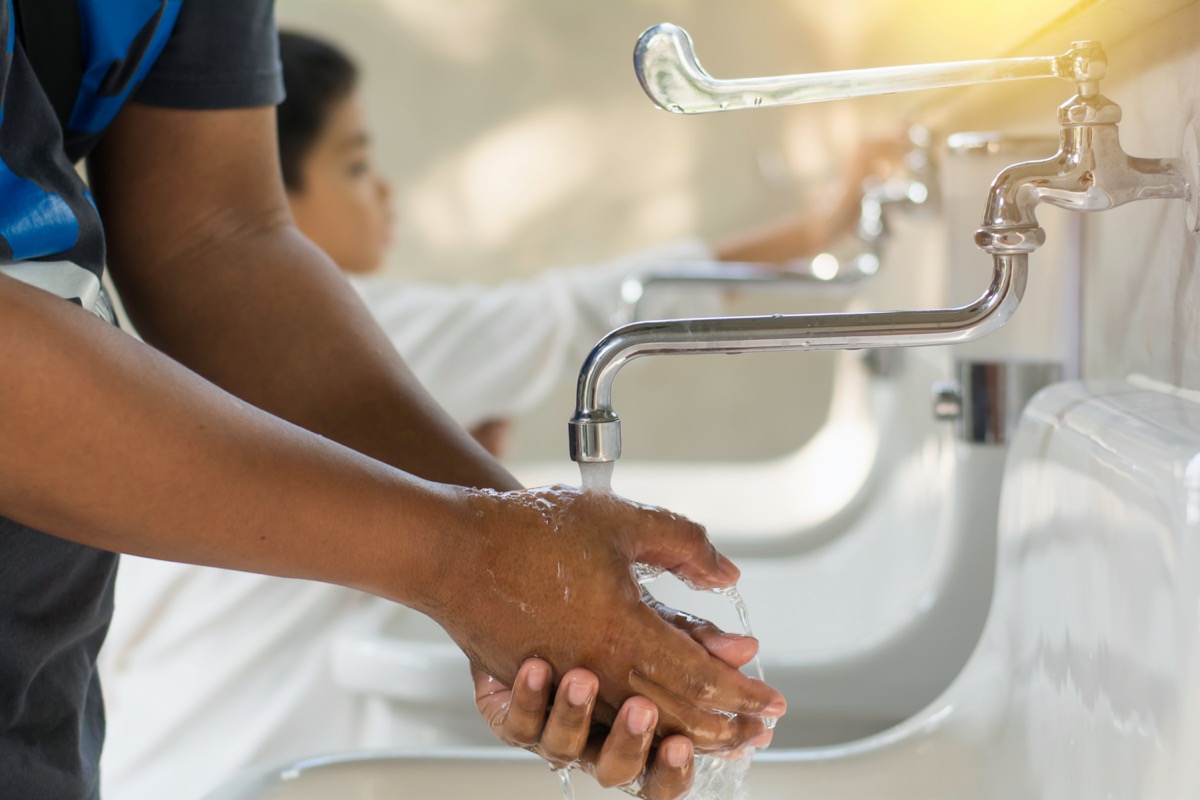
You’ve heard this advice from teachers and parents as far back as you can remember, and it especially holds true now. When you reach down to grab that sandwich or cup, you don’t want to accidentally touch your face with dirty hands.
Respiratory diseases thrive on water droplets that live on surfaces after people sneeze or cough. According to UNICEF, washing your hands before eating guarantees you won’t inadvertently put a stranger’s germs anywhere near your face or mouth when you can sit back and enjoy a meal out. By washing your hands before putting that burger or cup up to your mouth, you can save your health and friends and make it through the summer in one piece.
Stay at home if you feel sick.
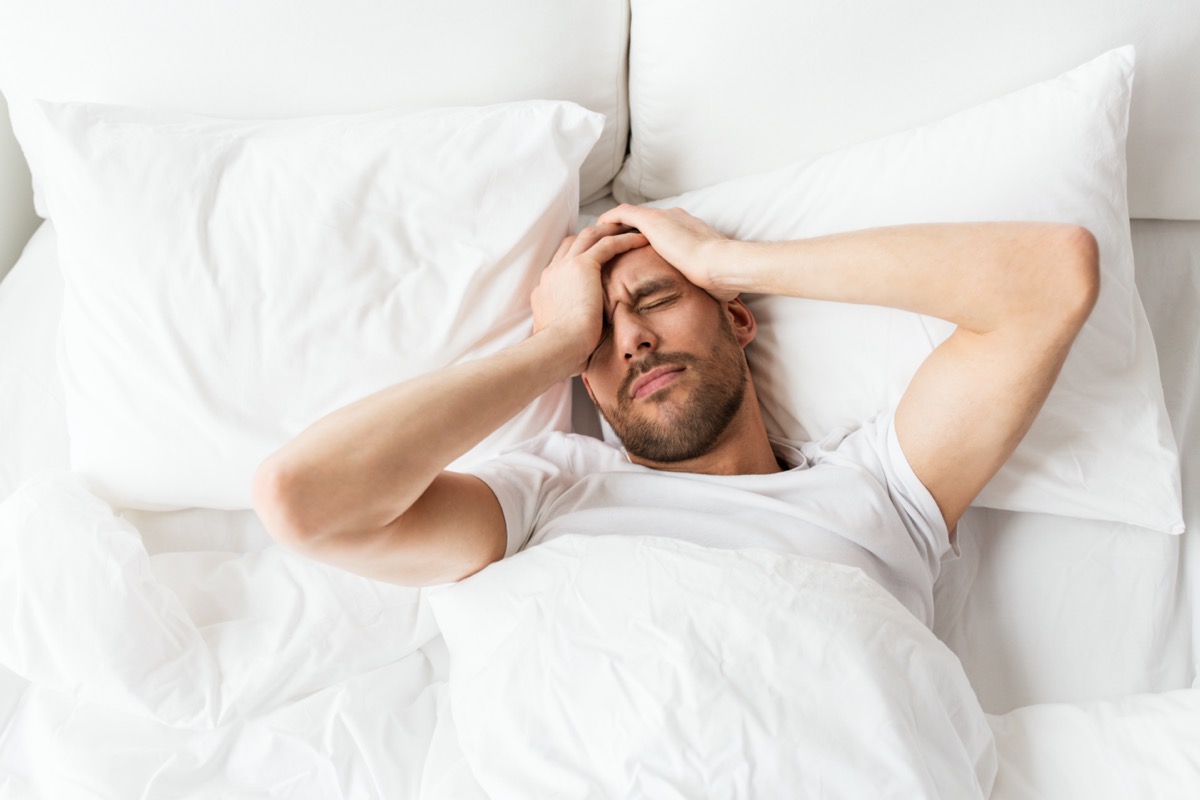
Whether you have been diagnosed with COVID-19 or even think you have a cold, don’t put others knowingly at risk. The transmission rate for person-to-person contact is staggering and nothing could be worse than knowingly exposing yourself to healthy strangers if you feel sick. In some states, knowingly going out and spreading disease can even land yourself in jail.
If you feel like you are coming down with something, don’t risk the health of others just so you can enjoy your favorite restaurants. Get lots of rest, increase your fluid intake, and don’t spend time with others until after you feel better. And if you really want to enjoy some food, always remember that you can order in and avoid the risk while indulging in your favorite meals.
